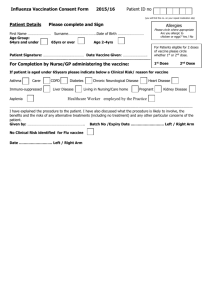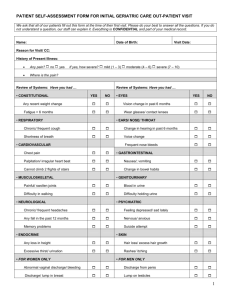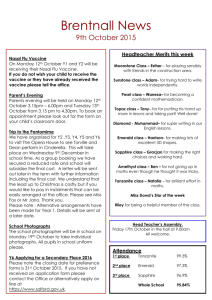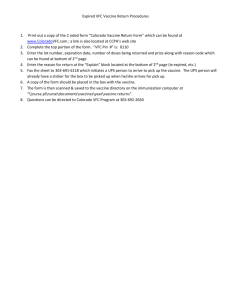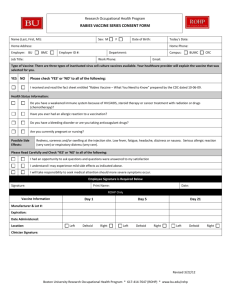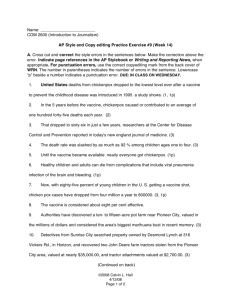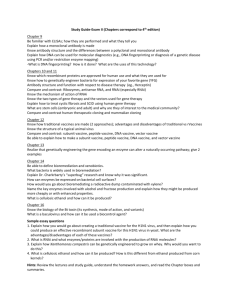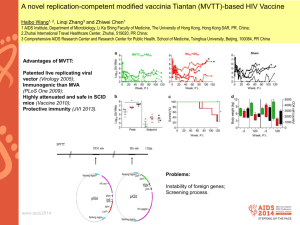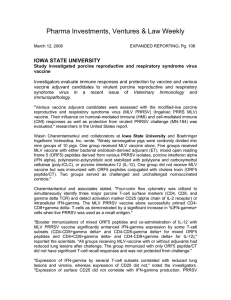Homework: 1.4 p.32-34 #1,3,6,8,9,11,12,13,27-29,31
advertisement
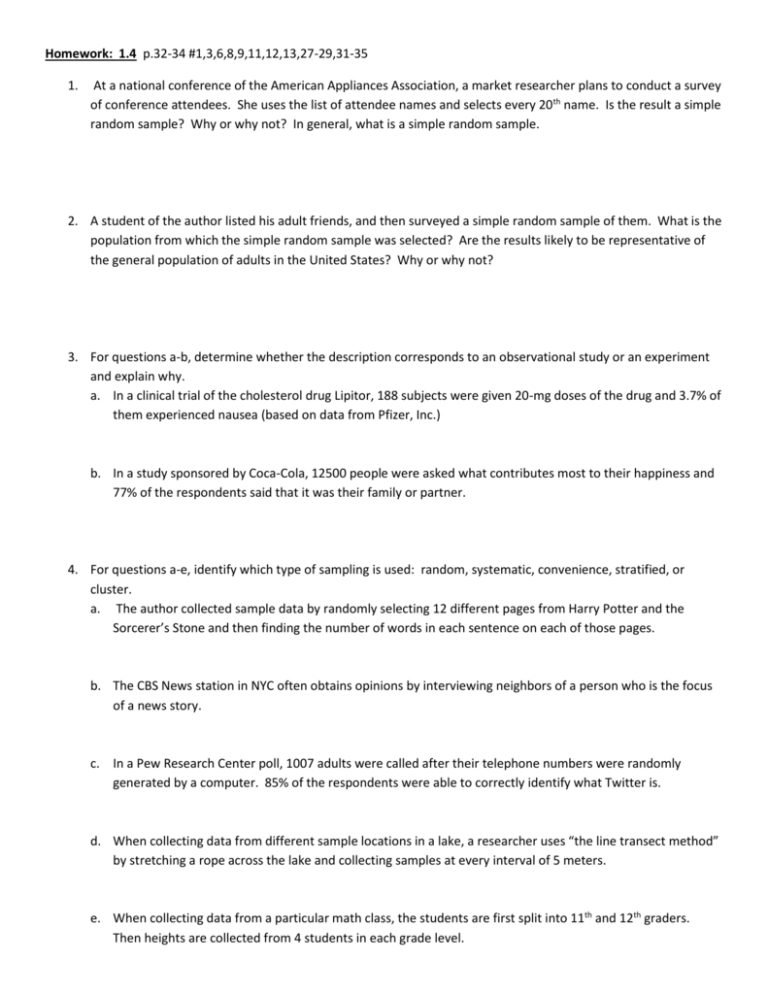
Homework: 1.4 p.32-34 #1,3,6,8,9,11,12,13,27-29,31-35 1. At a national conference of the American Appliances Association, a market researcher plans to conduct a survey of conference attendees. She uses the list of attendee names and selects every 20th name. Is the result a simple random sample? Why or why not? In general, what is a simple random sample. 2. A student of the author listed his adult friends, and then surveyed a simple random sample of them. What is the population from which the simple random sample was selected? Are the results likely to be representative of the general population of adults in the United States? Why or why not? 3. For questions a-b, determine whether the description corresponds to an observational study or an experiment and explain why. a. In a clinical trial of the cholesterol drug Lipitor, 188 subjects were given 20-mg doses of the drug and 3.7% of them experienced nausea (based on data from Pfizer, Inc.) b. In a study sponsored by Coca-Cola, 12500 people were asked what contributes most to their happiness and 77% of the respondents said that it was their family or partner. 4. For questions a-e, identify which type of sampling is used: random, systematic, convenience, stratified, or cluster. a. The author collected sample data by randomly selecting 12 different pages from Harry Potter and the Sorcerer’s Stone and then finding the number of words in each sentence on each of those pages. b. The CBS News station in NYC often obtains opinions by interviewing neighbors of a person who is the focus of a news story. c. In a Pew Research Center poll, 1007 adults were called after their telephone numbers were randomly generated by a computer. 85% of the respondents were able to correctly identify what Twitter is. d. When collecting data from different sample locations in a lake, a researcher uses “the line transect method” by stretching a rope across the lake and collecting samples at every interval of 5 meters. e. When collecting data from a particular math class, the students are first split into 11th and 12th graders. Then heights are collected from 4 students in each grade level. 5. For questions a-c, indicate whether the observational study used is cross-sectional, retrospective, or prospective. a. The Nurses’ Health Study was started in 1976 with 121,700 female registered nurses who were between the ages of 30 and 55. The subjects were surveyed in 1976 and every 2 years thereafter. The study is ongoing. b. In order to study the seriousness of drinking and driving, a researcher obtains records from past car crashes. Drivers are partitioned into a group that had no alcohol consumption and another than did have evidence of alcohol consumption at the time of the crash. c. Researchers from the National Institutes of Health want to determine the current rates of smoking among adult males and adult females. They conduct a survey of 500 adults of each gender. 6. For questions a-c, identify which of these designs is most appropriate for the given experiment: completely randomized design, randomized block design, or matched pairs design. a. Lisinipril is a drug designed to lower blood pressure. In a clinical trial of Lisinipril, the blood pressure levels of subjects are measured before and after they have been treated with the drug. b. A clinical trial of aspirin treatments is being planned to determine whether the rate of heart attacks is different for men and women. c. Currently, there is no approved vaccine for the prevention of West Nile virus. A clinical trial of a possible vaccine is being planned to include subjects treated with the vaccine while other subjects are given a placebo. 7. The HIV Trials Network is conducting a study to test the effectiveness of two different experimental HIV vaccines. Subjects will consist of 80 pairs of twins. For each pair of twins, one of the subjects will be treated with the DNA vaccine and the other twin will be treated with the adenoviral vector vaccine. In this study, blinding will be used. What is blinding and why is it important in this experiment?
